Abe: I’ve been on the boards of organizations where the executive director was transitioning out, and I’d say to people: “I’m not sure people can tell when they’re burned out or not. Would you tell me if I’m burnt out? Because I’m scared.” I was making certain mistakes—not technical things but poorly thought-out encounters or decisions—that were painful and embarrassing to me, which had me thinking, Am I that burnt out person?
Looking back on it, I don’t think that’s precisely what it was, but I was sick of having that responsibility and didn’t know it. There was this feeling of dread.
Michelle: Dread at going to work every day or dread at what would happen without the company in your life?
Abe: It was dread of: After all this, I could still fuck it up. That after thirty years I could rapidly crumble. The Theater Offensive is a queer organization that started in the middle of the AIDS crisis in the mid eighties, and that desperation is in our organization’s DNA. We had this spectacular creativity in response to that, but I hope the organization, in this transition, can carry through on that creativity and let go of that desperation, despair, overwhelming loss, and day-to-day fear of loss. That’s what I hoped for in my exit, that I’m taking that with me, getting rid of it myself, so that the company doesn’t have to live with it forever.
Michelle: That’s amazing. Although there still is a lot of dread and despair in the general atmosphere these days.
You said this transition process has lasted five years. Was it five years ago that you started to get a little signal that it might be time, and was it coming from this bit of fear?
Abe: A little less than six years ago I sat down with our board of directors chair, and we were talking about succession planning. The funders were asking for it. And I was like, “I don’t know. I don’t know what one looks like.” I went online and looked up “emergency succession plan.”
I hadn’t thought about what I wanted professionally for myself in a deep way in thirty years.
Michelle: I think that’s so common; all this jargon comes from corporate America. I didn’t know any of it, and I’m so glad. We had to look it up, too, and then we went, “Wait a minute, is that really what we want to do?” Rather than adopting it full on and following a proscribed business model, we decided to come up with our own process that fit more organically with who we were.
Abe: I can’t agree with you more. When I started the Theater Offensive, I had zero experience, no training. I started it because we were doing street activism, and it was so boring that I was like, “Oh my God, life is on the line, and even I think I’m boring. This is untenable.” I started writing skits. If I had known anything about how a theatre company was supposed to work, the Theater Offensive would have never existed. I would have gone, “Oh, well that’s impossible,” and not done it.
Michelle: Same with Ten Thousand Things. I didn’t even know what a budget was, I had no idea what a board director was, and there was no five-year plan to start out. Thank God, because you are right: we would never have done it.
Abe: We started creating a succession plan—they called it my bus plan, like if I were to get hit by a bus, and I called it my Costa Rica plan, if I decided to go to Costa Rica. The president of our board told me to take a week and write what I wanted out of the transition—not just what I wanted for the Theater Offensive. I found it completely torturous. I hadn’t thought about what I wanted professionally for myself in a deep way in thirty years.
I came back with a plan I had worked really hard on and he said, “This isn’t it. This isn’t what you want. This is you saying what you think the Theater Offensive needs from you.” And it took me a whole other year to get to a place where I was able to articulate what I wanted.
Michelle: What was that?
Abe: I wanted a life where my identity was not built around the Theater Offensive, where I was an artist first. My twenties were about life and death issues—that’s what the Theater Offensive started with—and I wanted to change it to being about quality of life: have time to be myself, care about the people I care about, and work on the projects I want to.
What did you want when you were leaving?
Michelle: About two years before the transition happened, I started to get this sense that I had sated my curiosity about Ten Thousand Things. There are still a lot of questions to be explored, but I felt too tired to start asking them. I felt it would be good for somebody new to come in. I was eager to turn my curiosity elsewhere. Because I was the founder, I knew it would be a big change for everybody, so I wanted to give everyone time.
It was most important to me that everybody who’d helped make this company—the artists, staff, board—have a say in the transition process. I was going to step back and let them figure it out, and it would take about two years to do that in a respectful and thorough way. The number one thing I felt was: I don’t want only the board deciding this. They don’t know who would make a good next artistic leader. They might have some insight, but the people who are really going to know are the artists who have worked with the company for years and years, who know its ins and outs, and the staff who have helped build it.
I wanted time for everyone to participate in designing a process where artists, staff, and board would all have a say. They created a committee of three artists, three staff, and three board members, and at the end, after four finalists had been chosen, all the core artists and staff and board got a say. Everybody got to talk to ask them questions.
We were also adamant about not hiring a search firm. They cost $50,000 or something, which is what Ten Thousand Things staff members made in a year! We didn’t want to pay anyone that amount of money for a month or two of work. Plus there was no way an outside consultant could understand what it would take to do this work.
The only thing I did in the whole process—and I got this idea from Bill Rauch—was to meet with the four finalists, have coffee with them, and then write one page on each candidate saying only positive things. The person who was chosen, Marcela Lorca, wasn’t necessarily my first choice. I didn’t know her very well, but she was absolutely the right choice. I was a little teary eyed at first when they told me who they had picked, but we started working together over the course of about four or five months, during the transition phase, before Marcela took over, and I quickly came to agree that she is awesome. I was very glad I had not been the decision maker!
Tell me about your process.
Abe: We made a succession plan, which involved a sabbatical for me, the executive artistic director. There was a managing director and a director of programs, and both would share leadership while I was gone. The plan was that then I would return and there would be a hiring process, possibly with internal candidates.
While I was gone, I was not in communication with the organization except for one phone call about the structure of my return and the hiring process. A consensus was made that if we felt good about the sabbatical, I would not take over when I came back—it would be a three-way shared leadership with me and the two others. We also would not have a hiring process, instead spending the year transitioning into shared leadership between the two of them.
Michelle: Wow.
The number one thing I felt was: I don’t want only the board deciding this. They don’t know who would make a good next artistic leader.
Abe: And there was consensus on the board and staff that that was a good plan. One of the two leaders, Evelyn Francis, had been with the organization nearly twenty years at that point, and the other, Harold Steward, had been with the organization just over a year, but I had known him well for six years.
I felt really good about it. And I also felt really good about not stepping back into my leadership role and having the people who had stepped up step back down. Often, in our field, when a sabbatical ends and a leader comes back, somebody leaves. And I wanted that to be me that left, not one of the other two people.
There were two hardest things about this transition. One was that, despite my best efforts, we faced some really tough financial turns during the transition, even though in the end, three months before my final day in my job, I bagged our first million-dollar donation, which changed the picture. The second thing was that, as a white male leader of a mostly people of color organization, and as a founder, I was largely oblivious to how intricate a web of privileges I took advantage of every day in my leadership. I had a journey of realizing how that same web of privileged support would not be there for the people of color, women, and trans leaders who were succeeding me.
I worked really hard to build as strong a support system for their leadership as possible, but really, with all of the work I’ve done over the years fighting racism, it’s embarrassing to realize how naive I was about my own founder privileges. Harold gave one little example that really woke me up. He said, “Theater Offensive says it serves four specific neighborhoods in Boston—largely people of color neighborhoods. Our office is not in any of those neighborhoods. It’s in the Back Bay.”
He was like, “As a Black man, who will be in and among other Black people in the neighborhoods we serve, these people are going to say, ‘How is this tenable? How can you have your office in the Back Bay when you say you’re serving our neighborhood?’” They’re not going to trust that, and he would be held responsible for something that people gave me a break about because we have worked together for a long time and I have white privilege.
Another difficult moment of the transition was that I was supposed to have given them a clear proposal for the consultancy work I’d do for them, and I was procrastinating. Eventually they got really fed up and hurt, and they thought, Is Abe trying to pull a fast one? Doesn’t he understand we have to process this proposal? Is he trying to make it so late that we can’t argue with him about it? They started to fear and lose trust that I was working in good faith. I thought, “Wow, that hadn’t occurred to me, that I would not be doing this in good faith.” I had underestimated my own power and how hurtful it could be if I wasn’t responsible in the ways I was executing my power in that situation.
Michelle: It’s awesome that you were open to all that input and insight you were getting in the process. That seems really important to making it work.
Thinking about what you said about building a strong support network for the new person, that was very clear to me from the very beginning, because most people at Ten Thousand Things have been with the organization at least ten years, some even longer. So when I first announced my intentions, the one thing I asked of people was to stay a year or two to help Marcela through the transition, because I knew it would take that amount of time for her to really understand what’s going on.
Everybody agreed—and everyone’s still there, so that’s a really good sign! The staff stepped up and did a hell of a lot of extra work. The board, realizing this, stepped up and focused on increasing staff pay over this transition time, getting it up to levels that were really sustainable and would make people feel like they wanted to stay.
As a white male leader of a mostly people of color organization, and as a founder, I was largely oblivious to how intricate a web of privileges I took advantage of every day in my leadership.
Abe: I had been working on a strategic plan before I went on sabbatical, during the time when it was a three-way shared leadership, but before I left we made a really good decision to set that aside. The two others worked on a new strategic plan largely without me, which I thought that was great because I wouldn’t be there to execute it. The one I had been working on had been fairly conservative, but they came up with something bold and exciting and dramatic. There was a new mission statement for the organization and really exciting new directions. Now it is a people of color organization, and the artistic core of the work for the next few years is really trying to articulate queer and trans people of color aesthetics.
It’s really an honor to have built an organization that is grown up enough to make its own big, bold decisions, with my support, but not with my leadership.
Michelle: At Ten Thousand Things it was the opposite. People love the company so much and they’re very protective of it, so we did not even try to make any kind of new strategic plan. We’ve just extended what we’ve been doing for a couple of years to get through the transition.
One of the wonderful things about Marcela is that she has a very different leadership style than I do. I tend to be really vocal and passionate and out there, whereas she is a wonderful listener. I think she realized how important it was to so many people that certain basic things about the company stay the same. Also, practically speaking, there are limited options in how you can take one play to so many different audiences, if you want it to work. So only now, in Marcela’s second year, are they starting a strategic plan. There may be some giant, radical change, but I imagine it’s more likely that she will have a gentle way of pulling the organization in new directions.
I love that the change was radical at the Theater Offensive, though, and that you feel good about that.
Abe: It’s thrilling for me. Building the organization over time was really powerful, but growth tends to make an organization more conservative. I don't mean politically conservative, but the larger an organization gets and the longer its legacy, the more you think about protecting people's jobs, protecting the institution, protecting the relationships. Sometimes those interests discourage you from taking big risks to advance your mission. It’s exciting to me that in this moment of growth it is the opposite happening. There has also been staff turnover, which is hard because I love the staff who are leaving, but that’s part of change.
As a founder, there was a lot about the Theater Offensive that was built around my own strengths and weaknesses. Now that I’m independent, one of the hardest things has been recognizing that I had surrounded myself with people who are really good at things that I’m not good at and that I don’t have them every day anymore. One of the ways I asked for people’s support in this transition is for them to understand that the new folks will have their own strengths and weaknesses.
Michelle: That’s so great. It makes me think of when I first told the staff I would be leaving. Everybody was really upset, and even through the process some people started to worry about some of the choices being made. I said, “I want you to take some time and imagine that the new person, whoever it is, is actually going to be way better at a lot of things than I am.”
Abe: Like, “You guys have been very accommodating of my idiosyncrasies, but let’s just imagine this new person is actually better.” I’m on the same page. People have asked me, “What if you’re unhappy with some of the decisions they make?” And I’ve answered, “Well, I was unhappy with decisions I made every day.” I’m accustomed to that, it’s not a problem. I imagine the new leaders are going to make a lot more things that are going to blow my mind.
I hope this discussion we’re having can act as a message in a bottle to baby boomers, like: You can leave. When I went on sabbatical, there was a moment when I realized it had been ten days since I had had a conversation with anybody that involved my job. I was in Costa Rica, and the people here seemed to find me interesting enough. It made me wonder why my identity was so wrapped up with my job. Realizing this was so liberating.
I hope this discussion we’re having can act as a message in a bottle to baby boomers, like: You can leave.
Michelle: I will say that I have not missed it at all, and that truly surprises me. I thought I might at some level, miss least parts of it, but honestly, where I am in my life, I actually feel done with theatre. Ten Thousand Things was the way I wanted to make it, it was the only way that made sense to me. And now I want to look for something else to do. With the pain, and the crisis, and the horror of our world right now… I don’t know if I could make theatre under these circumstances.
Maybe I’m going the opposite direction of you, where you started out as an activist and then went to theatre? My theatre has always had activism in how we made it and who we did it for. But I’m feeling the need to do something more direct right now in terms of trying to help the world.
I retired in October 2018, and I took a whole year off and all I did was read. I had a huge nonfiction reading list, and I made this little routine for myself every morning, which involved reading poetry, writing in my journal, doing a little creative writing, and then reading on economics, history, politics, racism, feminism, all of it. It was like being a kid again, following my curiosity.
My idea was to have two or three little pilot ideas to try out in a year, but then it hit me that there was actually no point in me trying to plan out the next phase of my life until November 2020, because what happens then for me, it’s like life or death, what the world is going to require.
I thought, “Michelle, you have this gift of time and most of your friends don’t, they’re busy trying to make a living, support their kids, all that stuff.” I had this little gift of time, and I decided to put it into making sure what I don’t want to happen in November 2020 doesn’t happen. I’ve been volunteering to get the right candidates and to get out the vote this year. So I still don’t know what’s coming next for me. I’m still in the sabbatical thing you had, but it’s exciting and fun.
Abe: I’ve been searching for quotes from people about how letting go has been so much more powerful and pleasurable than I could imagine. And I keep thinking about the barriers I had in front of me that stopped me from considering it sooner. I was really scared for myself in a lot of ways, like financially, and I did not set things up for this to be easy.
Michelle: I think it’s scary for most theatre artists.

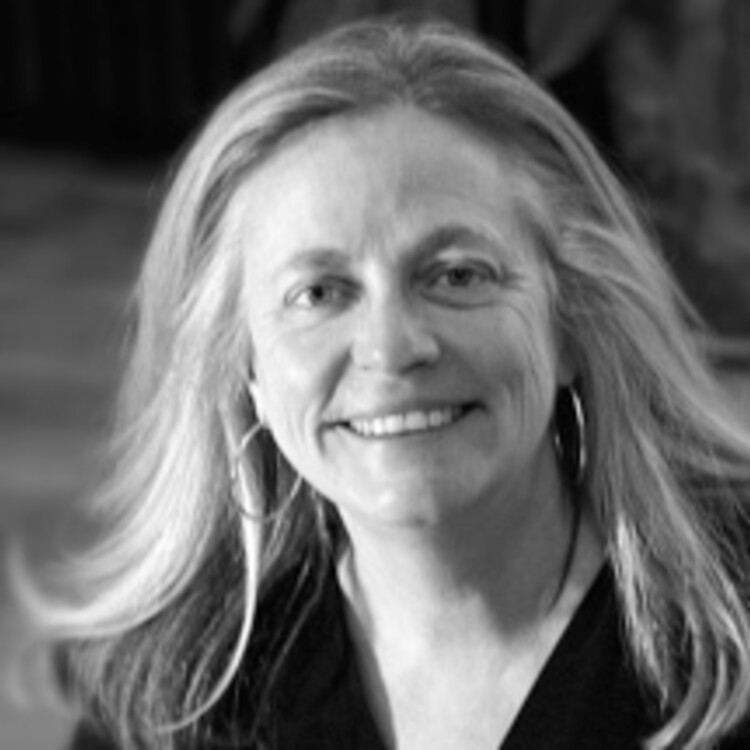
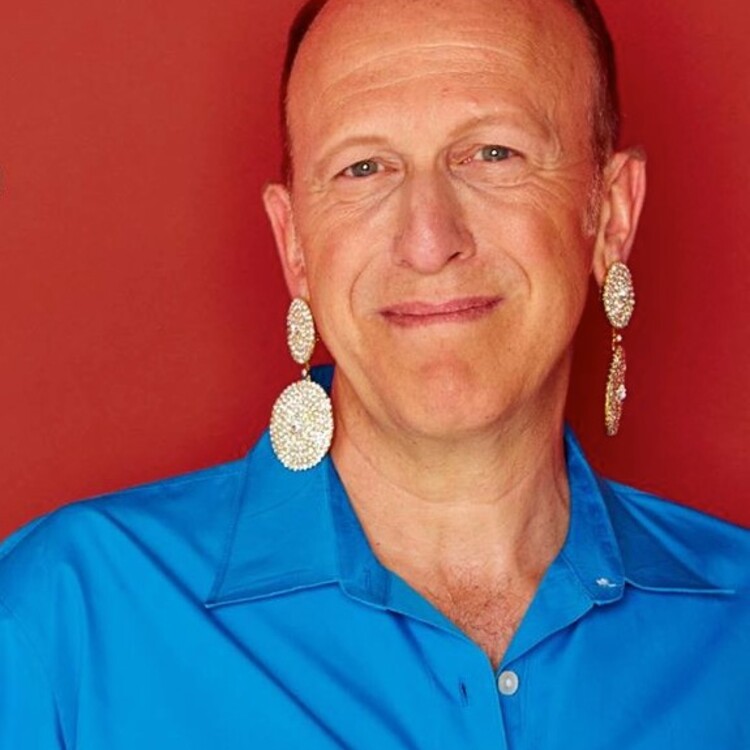
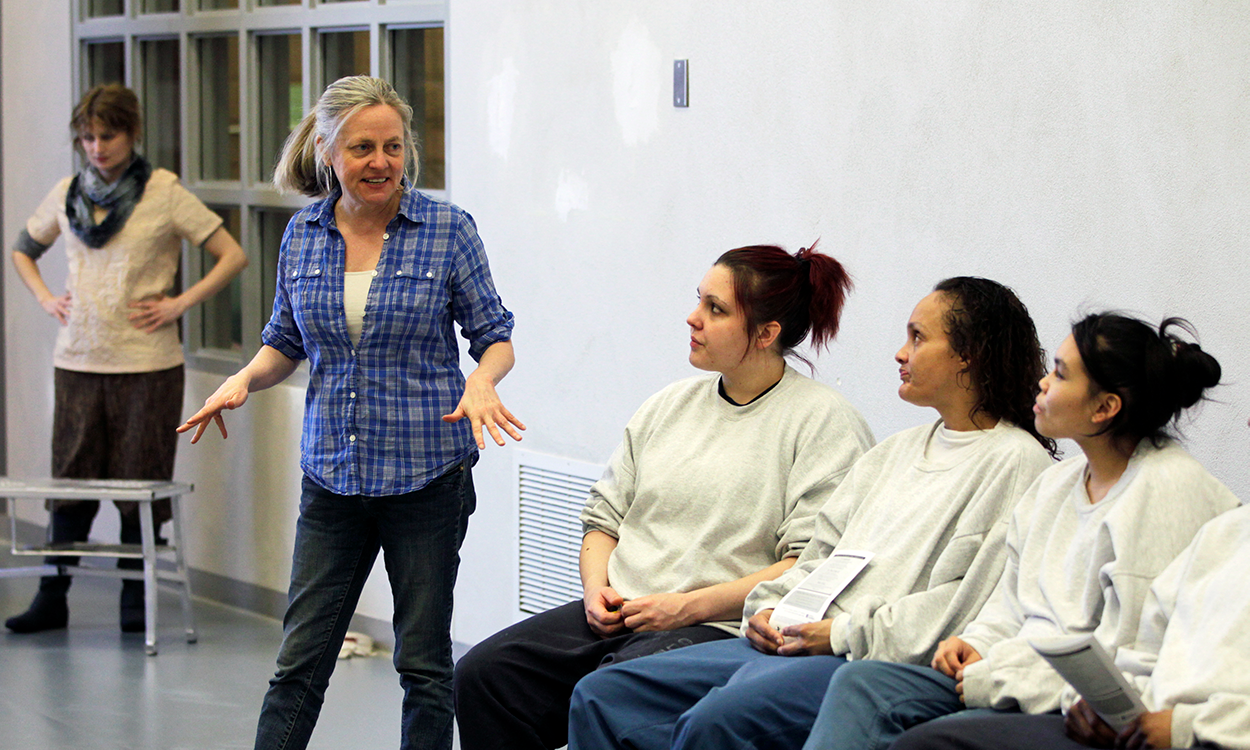
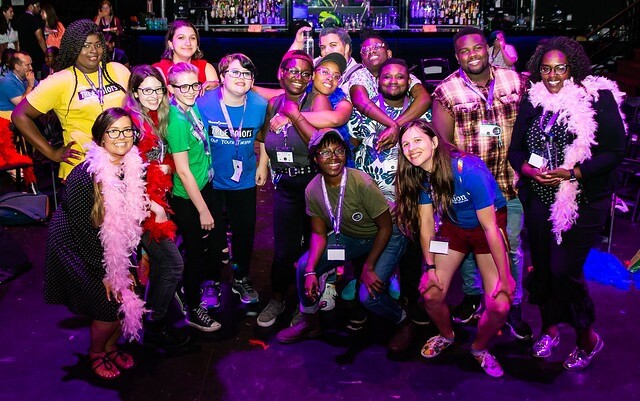
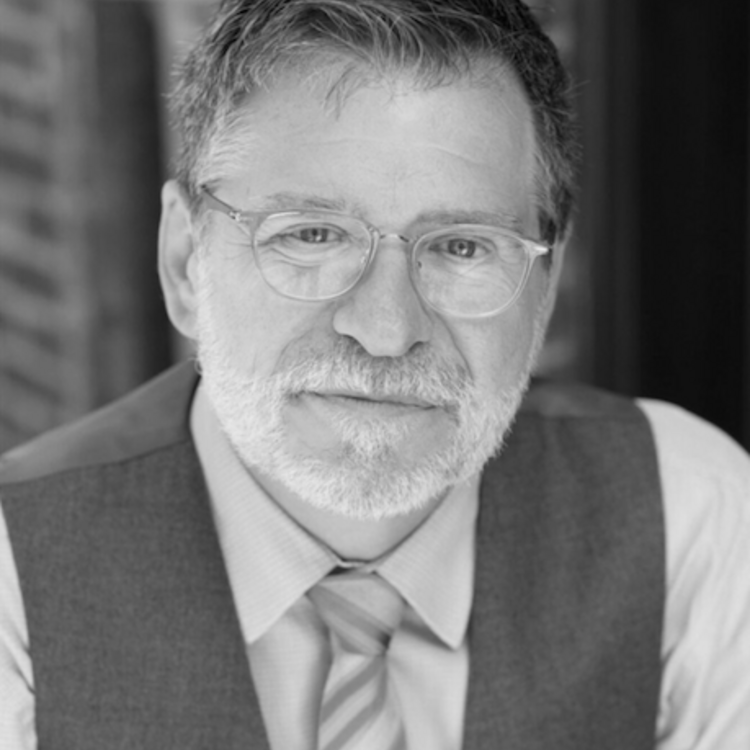
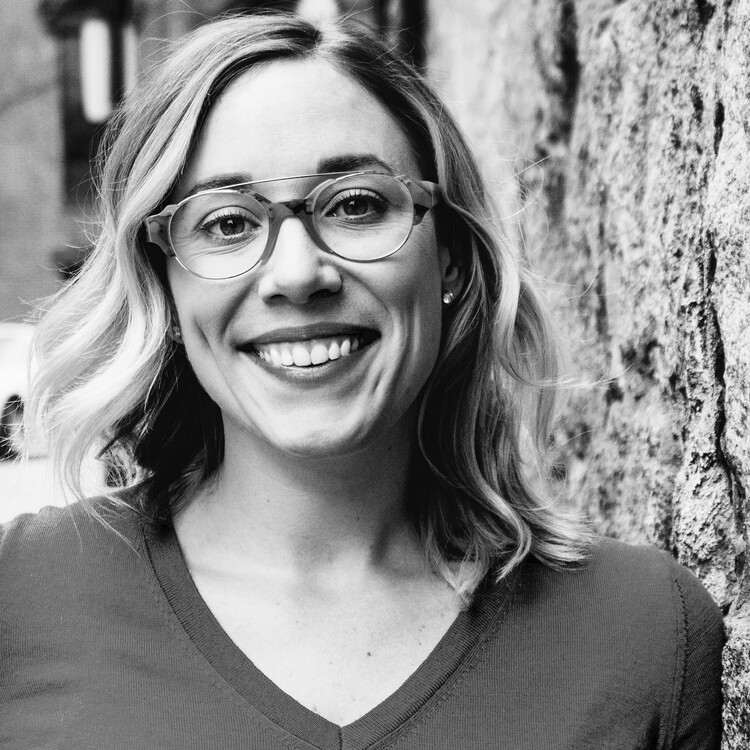
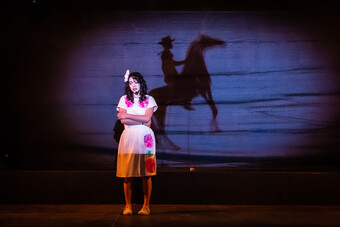


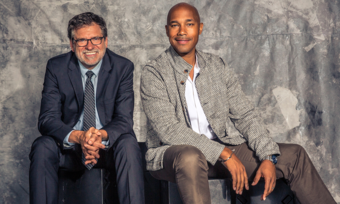





Comments
The article is just the start of the conversation—we want to know what you think about this subject, too! HowlRound is a space for knowledge-sharing, and we welcome spirited, thoughtful, and on-topic dialogue. Find our full comments policy here
I can't believe I left out the most important learning from my transition: Not running an organization is really good for your sex life!